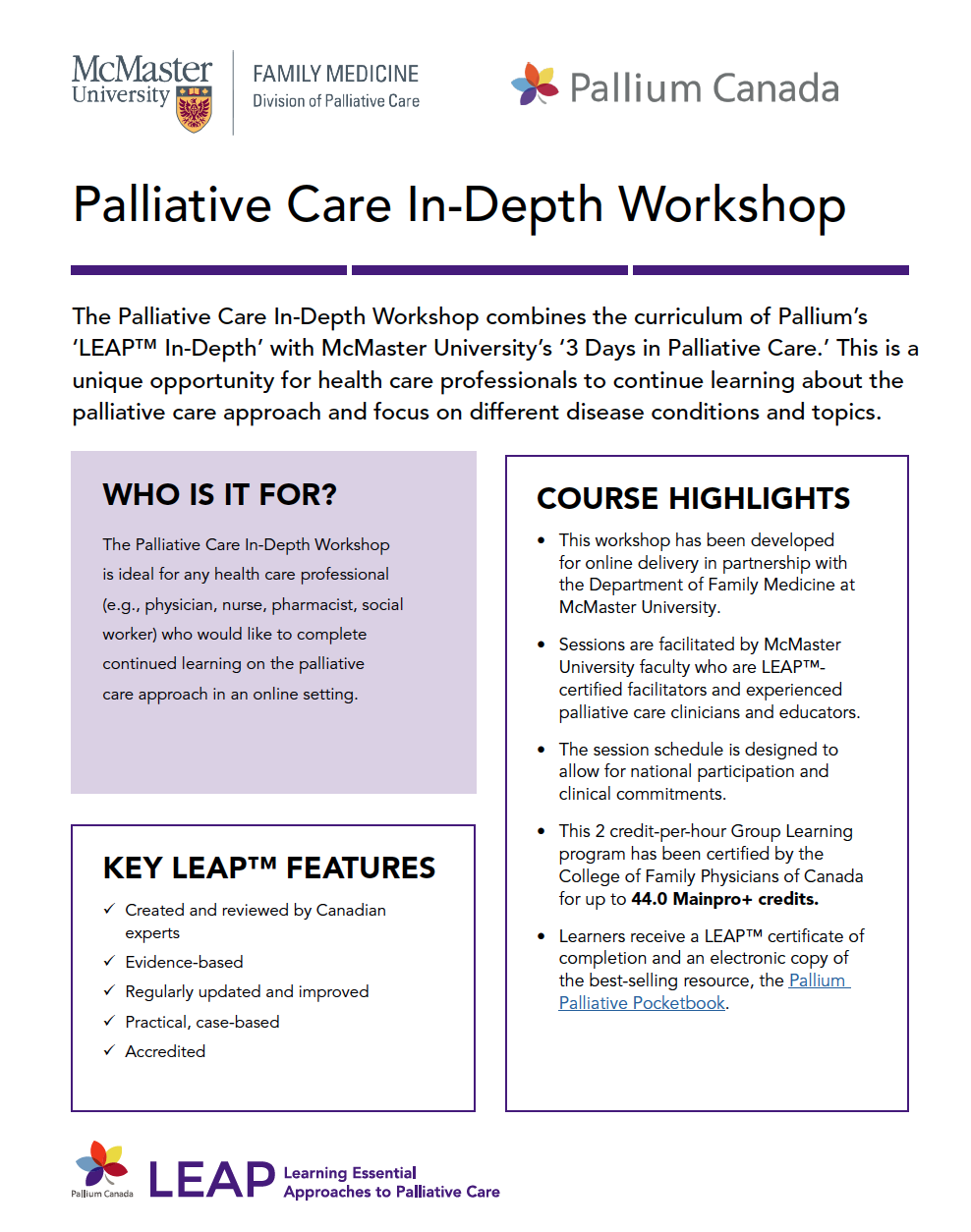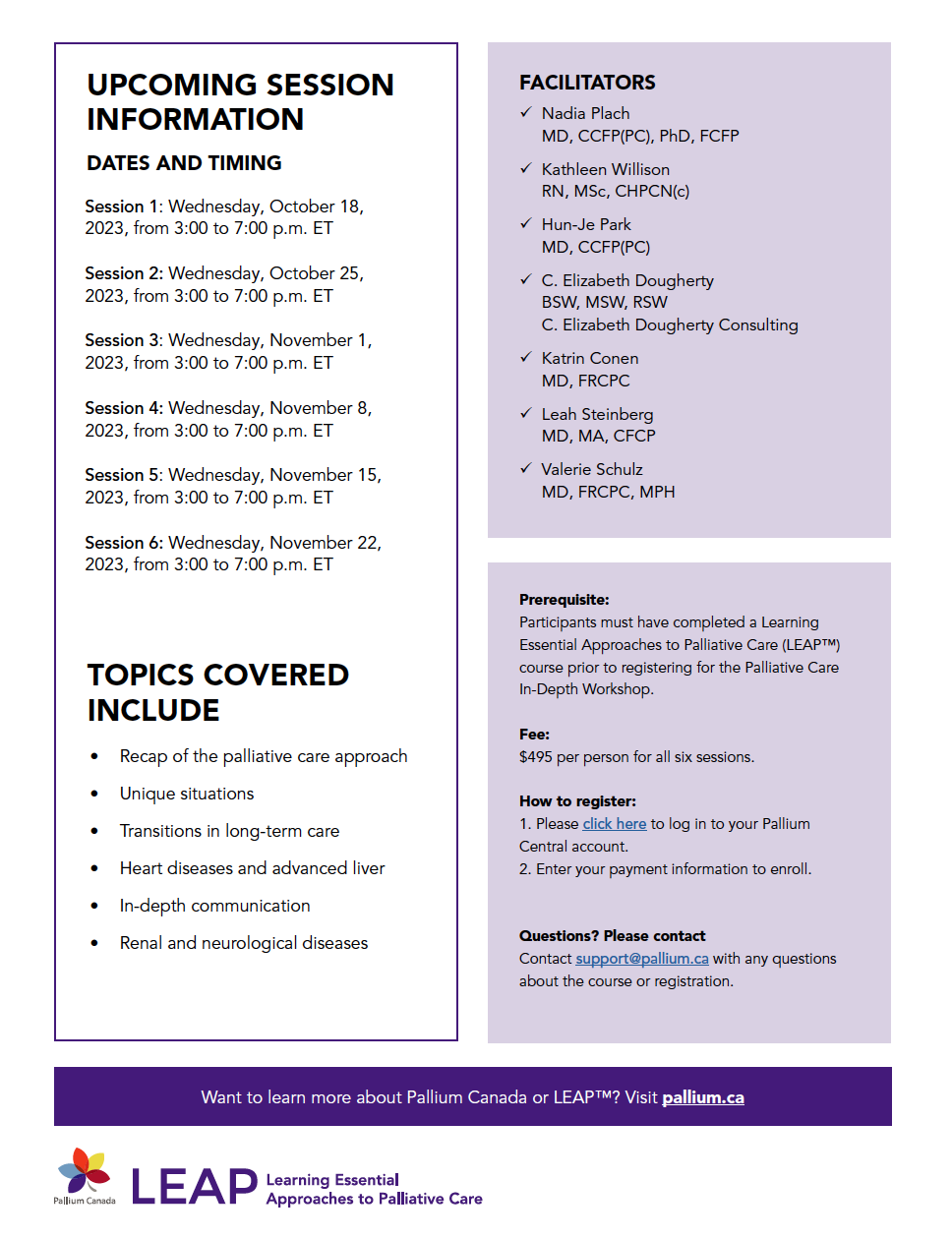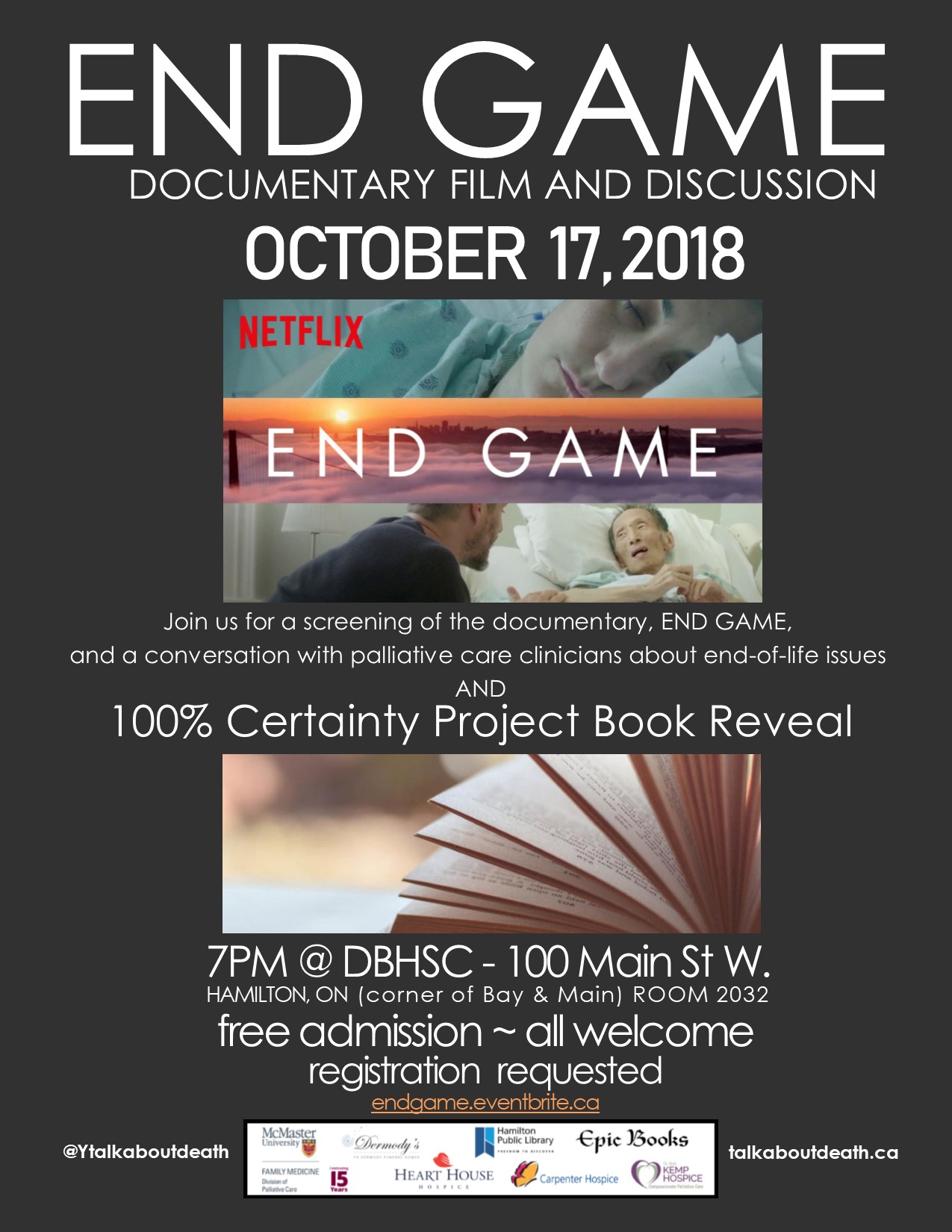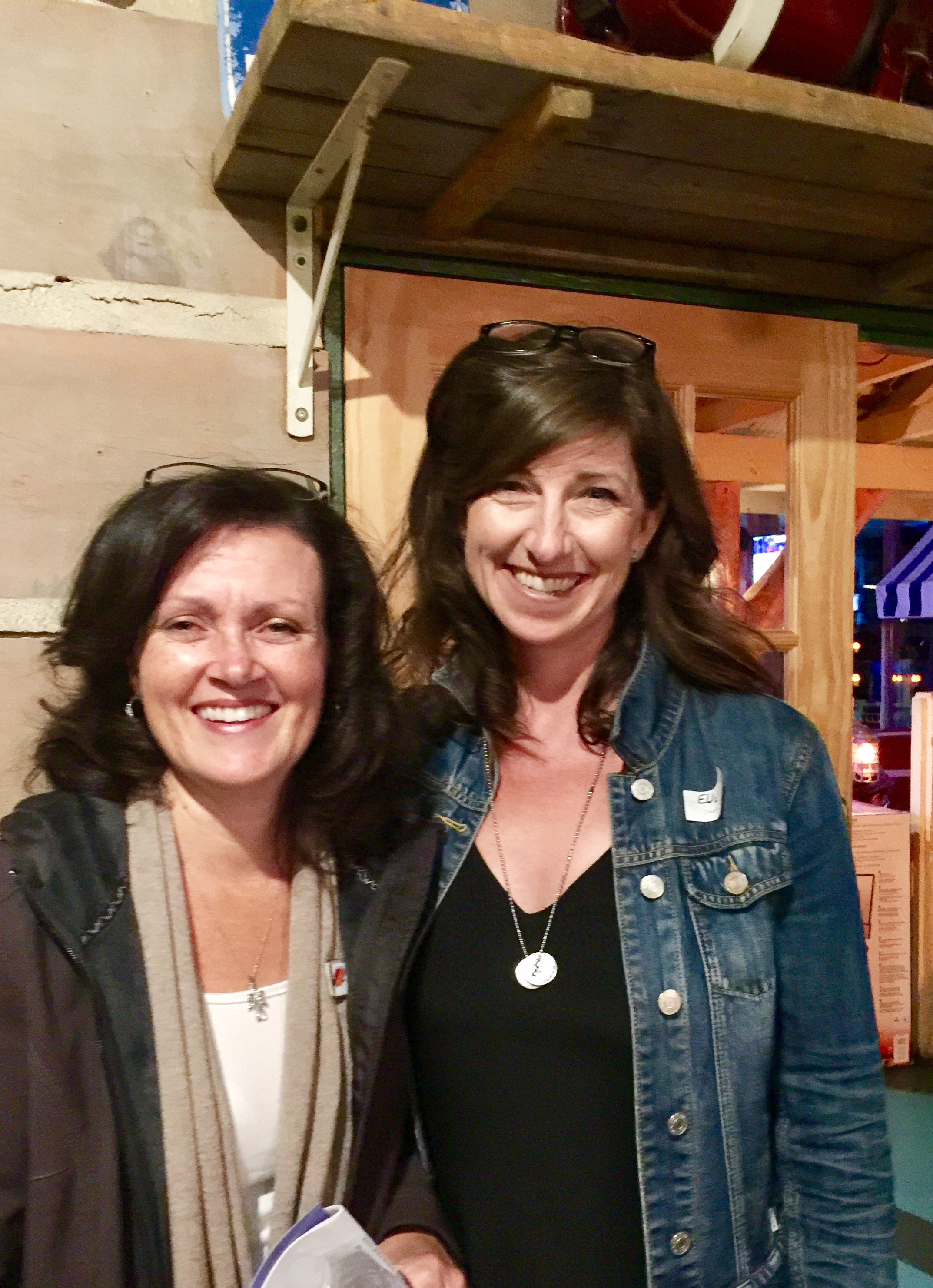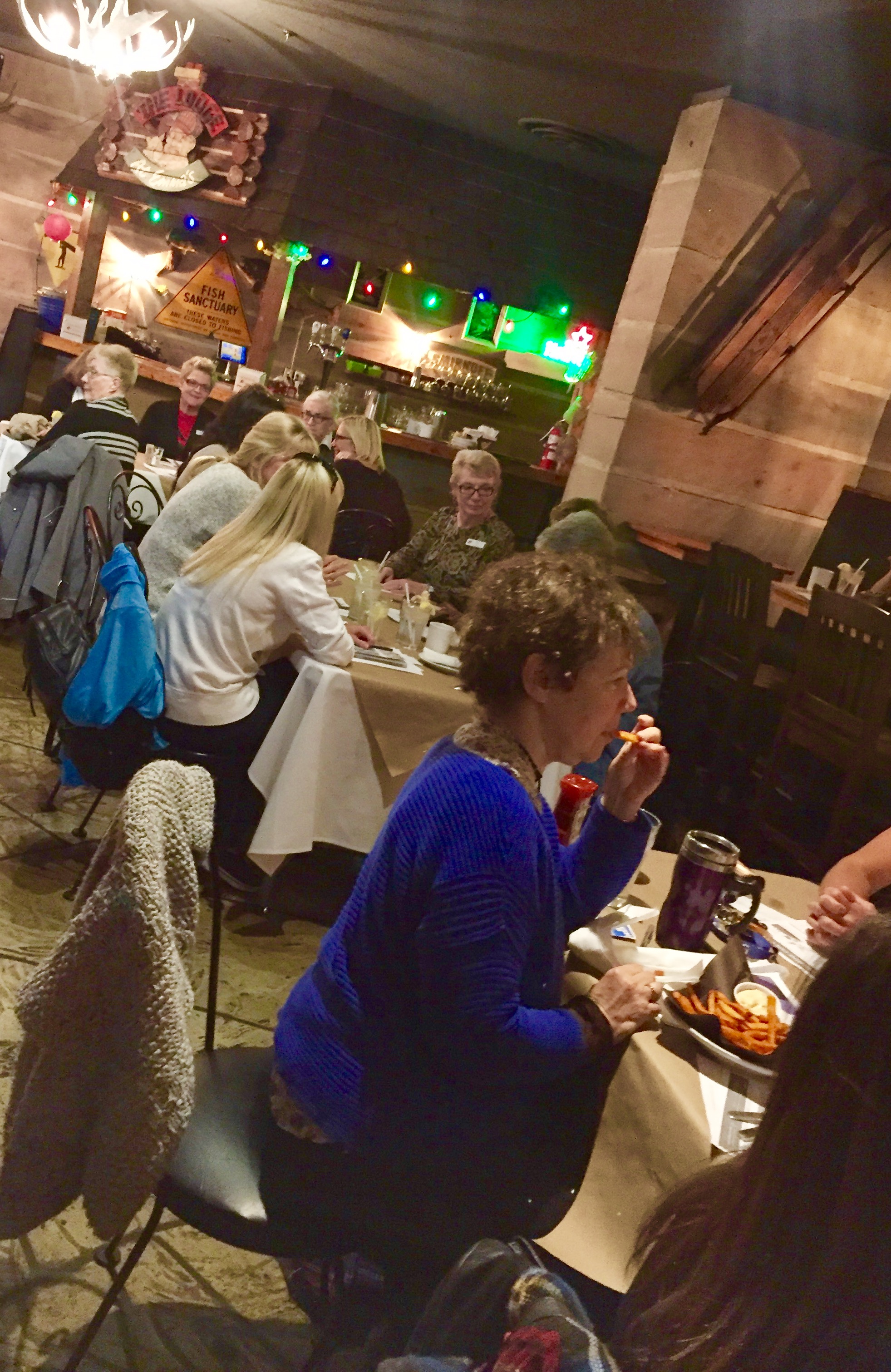Was honoured to present Across the Continuum: The Need for Innovative Approaches to Person and Family-Centred Care, a H.I.T (Healthcare, Innovation, Technology) Talk at the Hospice Palliative Care Ontario 2017 Annual Conference "Accessing Compassionate Hospice Palliative Care Across the Continuum" (excerpt below).
From time of diagnosis so much is asked of those facing a life-limiting illness… Ultimately, they’re expected to “hold on” while also having to “let go”. How then can we consider innovative approaches to person and family-centred care across the continuum, at a time when healthcare providers are required to do more, with less?
I am honoured to say that I am a Social Worker, and there’s a phrase that rings true for me in the work that I do as I often step outside of my comfort zone. The idea of “leaning into the discomfort”. I’d like to reflect on why it’s important for every healthcare provider to consider the way we approach our work.
Working within a frenetic yet extraordinary healthcare system, we face time-constraints, the demand for evidence-based competencies, the expectation of metrics and outcome measures, people often referred to by a medical record number or identified by a disease… quite often, healthcare feels rushed and impersonal… As a result, healthcare providers may not fully engage because of increasing practice demands and time constraints, they may avoid certain experiences where they don’t feel competent or hesitate to go those places when faced with uncertainty…
In fact, much like life itself… acknowledging and meeting the challenges in the midst of uncertainty and chaos are really an integral part of our work. How then can we engage and enter those spaces when we feel that we don’t have time, when we don’t know the answers, or when we’re unsure of what we may find?
While the idea of creating and implementing innovations in practice may sound weighty, the definition of innovation is actually quite simple. Innovation is the introduction of something new… a new idea, method or device. That’s it. You don’t necessarily need to write a grant, or consider retraining, or apply to the research ethics board (and while that may be part of your innovation), introducing something new doesn’t have to be onerous, it can actually be something quite simple.
Hospice Palliative Care has always been ahead of the curve… in recognizing and valuing person and family-centred care, in acknowledging "total pain", in taking holistic approaches to supporting quality of life, to recognizing and integrating interprofessional collaboration. Innovations in Hospice Palliative Care remain essential today, and perhaps more so now than ever before.
At present, we’re faced with tremendous opportunity. With the quality of living and dying on our social and political landscape, with Bill C-277 (An Act providing for the development of a framework on Palliative Care in Canada) passed by the House of Commons, with the provincial and federal governments acknowledging the need for increased funding in Hospice Palliative Care… we’re on the precipice of change. How then can we be agents of change, and consider innovative approaches to person and family-centred care across the continuum - from time of diagnosis, throughout the trajectory of an illness, at end of life and into bereavement?
We face the reality that many people, including many healthcare providers, assume that Hospice Palliative Care is nothing more than a euphemism for end-of-life care. That presents us with an opportunity… to continue to advocate and educate about the remarkable scope and breadth of Hospice Palliative Care across the continuum. But in doing so, it’s also important to consider, when does dying begin, and how can we support people to live well during that process?
Does dying begin the moment we’re born? Or when a fatal condition begins? Is it when that condition is recognized by a physician, or it when nothing more can be done to reverse the condition or to preserve life? As we know, the answer to that question varies from one person to the next…
While many focus on the quality of dying, or on death as a singular event, isn’t the whole end-of-life experience informed by the people and the events leading up to that death?
It’s these processes that take place in the days, weeks, months and even years before the death that are of paramount importance and contribute to overall quality of life - and that’s where we, as a community of care providers, can have the greatest impact.
Healthcare providers are often inhibited by their anxieties about saying or doing the wrong thing. This is true for any clinician, beyond our formal training and education, we continually face new scenarios, challenging experiences and uncertainty… We need to step outside of our comfort zone, and with humility… explore person and family-centred innovative approaches to care in an effort to promote healing.
It’s a profoundly intimate experience when we are allowed to share that space with someone facing dying, death, grief and loss… that compassionate connection can transcend so many barriers, and sometimes, however momentarily, sometimes… it can even transcend suffering. That connection can be extraordinary.
I believe as Health Care providers in Hospice Palliative Care, we can continue to lean into our discomfort and remain open to uncertainty and to wonder. I believe, through our humility and vulnerability, we can create compassionate and innovative approaches to person and family-centred care, and in doing so, provide invaluable opportunities for people to connect, and collectively process experiences across the continuum - from time of diagnosis, through to end-of-life and into bereavement.
As Dr. Rachel Remen explains, "the most important questions don't seem to have ready answers. But the questions themselves have a healing power when they are shared. An answer is an invitation to stop thinking about something, to stop wondering. Life has no such stopping places; life is a process whose every event is connected to the moment that just went by. An unanswered question is a fine traveling companion. It sharpens your eye for the road".
We’ll always face challenges and uncertainty in our work, but we need to be invested in innovative approaches to person and family-centred care, because as Dr. B.J. Miller says "Quality of Life isn't a Consolation Prize".

